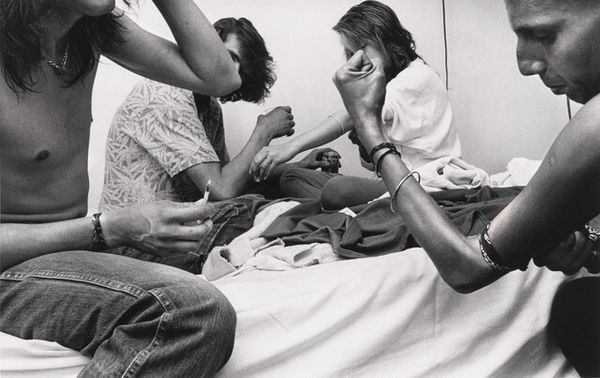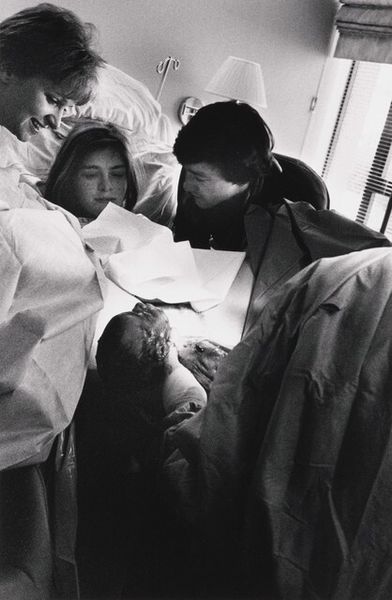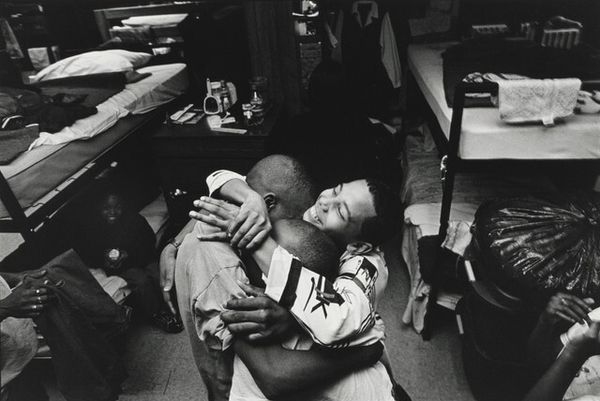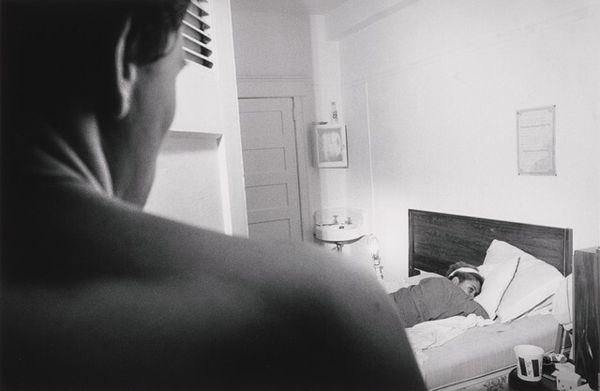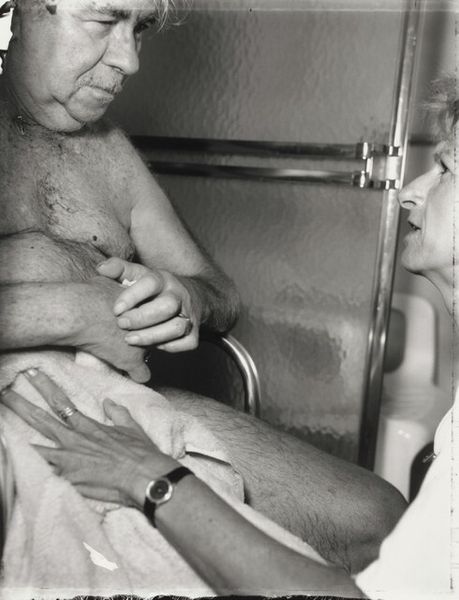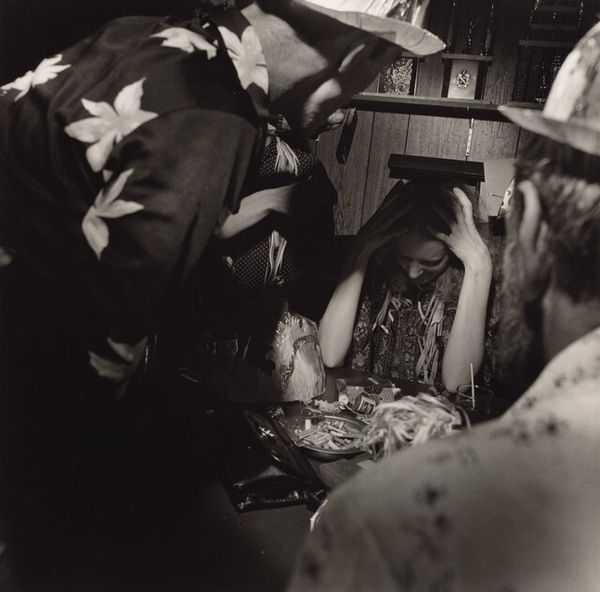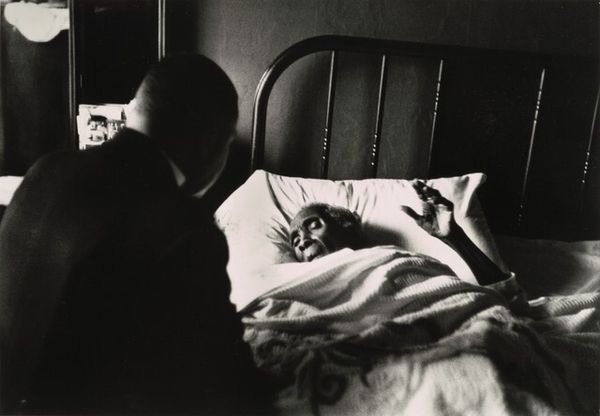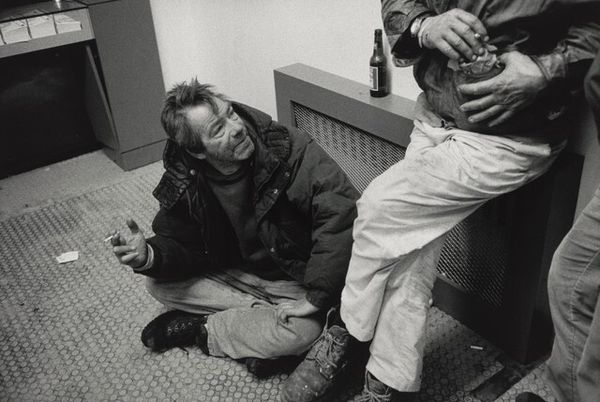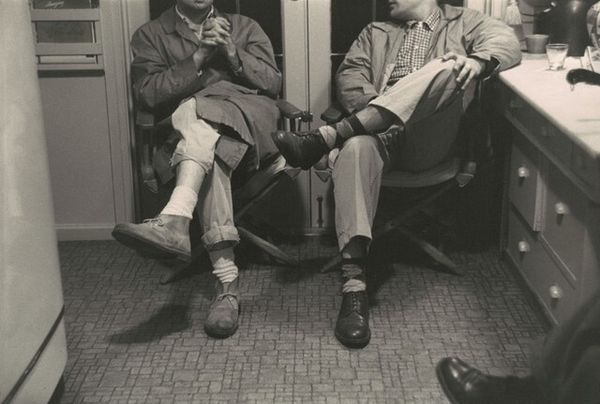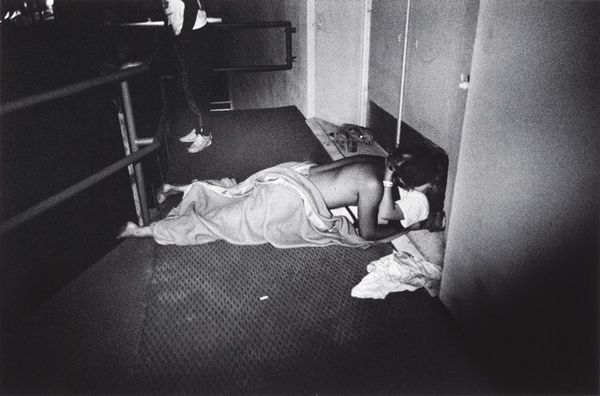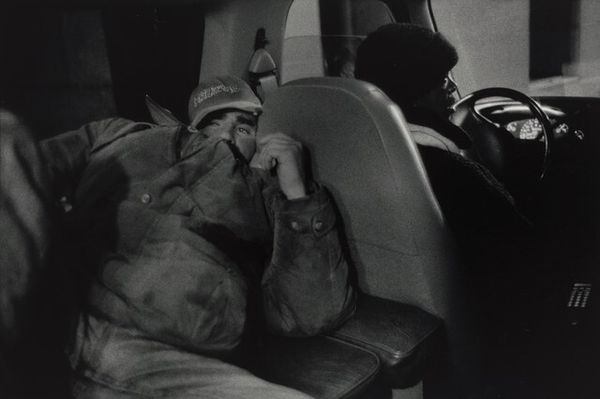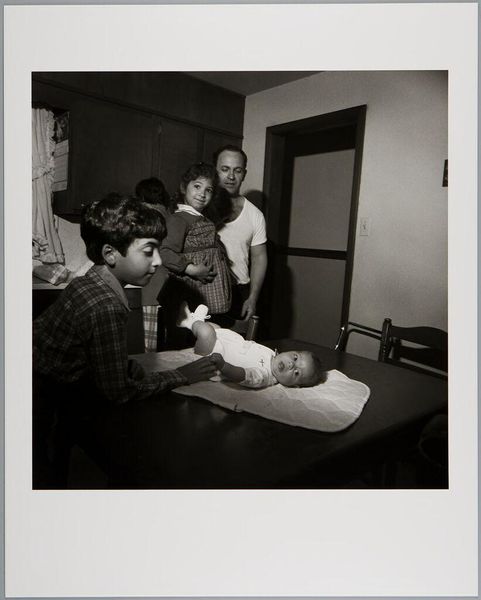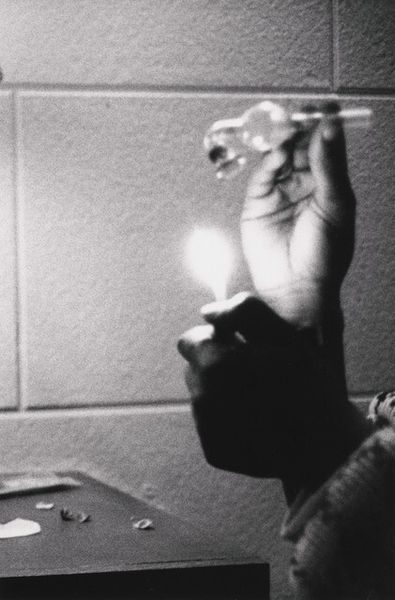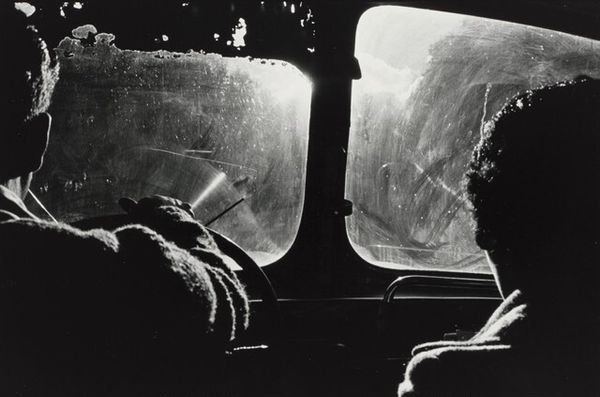
Boston (One way in which the staff at the Pine Street Inn tries to establish relationships of trust with their homeless clientele is by encouraging them to have foot soaks at the end of the day. Afterwards, they are given clean socks and, if necessary, new shoes. The nurses have often found that over a period of time, their guests relax enough during these sessions to tell them what is on their minds.) 1999
0:00
0:00
photography, gelatin-silver-print
#
portrait
#
black and white photography
#
street-photography
#
photography
#
black and white
#
gelatin-silver-print
#
monochrome photography
#
monochrome
#
realism
#
monochrome
Dimensions: image: 22 × 32.6 cm (8 11/16 × 12 13/16 in.) sheet: 27.9 × 35.4 cm (11 × 13 15/16 in.)
Copyright: National Gallery of Art: CC0 1.0
Curator: Betsy Karel's photograph, gelatin silver print to be exact, is entitled "Boston (One way in which the staff at the Pine Street Inn tries to establish relationships of trust with their homeless clientele is by encouraging them to have foot soaks at the end of the day. Afterwards, they are given clean socks and, if necessary, new shoes. The nurses have often found that over a period of time, their guests relax enough during these sessions to tell them what is on their minds.)" captured in 1999. Phew, quite a title. Editor: It really sets the stage, doesn't it? My first thought is that the starkness of the black and white heightens the vulnerability in the image. It's like, we're peering into this very intimate, yet public act. Curator: Intimate indeed. There’s a realness that strikes me—almost a tenderness despite the bleakness of the monochrome palette. Karel is so good at capturing a raw kind of human connection within everyday circumstances. Like poetry carved out of asphalt. Editor: I agree. The act of care depicted here becomes a radical statement, almost. Consider the power dynamics at play, the systematic dehumanization of the homeless population. Something as simple as washing someone's feet becomes deeply political. Curator: Absolutely, it reframes care as a subversive act. It almost hums with quiet rebellion against a world that frequently fails to see the humanity in these individuals. The simplicity, the directness… no fancy lighting tricks, just pure unfiltered presence. It's brave, I think. Editor: And brave in its narrative! Karel encourages us to interrogate the systems that perpetuate such disparities. How does this act of service address deeper issues of housing, healthcare, social stigma? How does a single foot soak push against societal indifference? Curator: I feel almost voyeuristic looking at it, caught in the act of witnessing something private and sacred. Which, now I think about it, makes the work more effective in a way. The discomfort shakes me from my privilege-induced slumber. It sparks something... Editor: It sparks conversation, confrontation, and perhaps even a call to action. What if we saw the unsheltered as people worthy of tenderness? This photograph challenges us to unpack our preconceived notions. Curator: Yes, Betsy Karel offers us more than just an image, she gifts us with a moment of sobering self-reflection. That’s the mark of truly great art, isn’t it? Editor: Precisely. And she gently demands a world rooted in radical empathy. One step at a time, starting perhaps, with a simple foot soak.
Comments
No comments
Be the first to comment and join the conversation on the ultimate creative platform.
